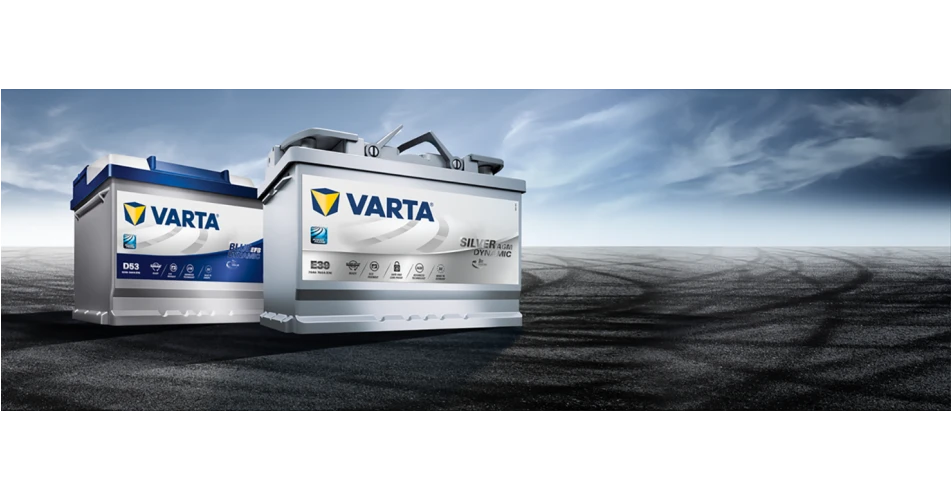With a planned ban on petrol and electric new car sales in 2030 and a growing consumer acceptance of electric vehicles, there is no doubt that the car parc in Ireland is changing. With this in mind battery specialist VARTA has given an insight into future trends that workshops need to be aware of.
In addition to the engine type changing, vehicles are fast becoming increasingly software based, with most big vehicle manufacturers investing heavily in this direction. For example Volkswagen have recently acquired a majority stake in connected car platform WirelessCar and are planning to hire 10,000 digital experts in their Car.Software organisation by 2025. Similarly Mercedes have added over 200 software engineers to their Mbition division, focussing on future technology developments for their vehicles. Toyota have recently announced a €1billion investment in connected car and artificial intelligence and many of the other big players are also significantly putting budgets towards this type of activity. It is clear that cars being developed at the moment will be packed full of computer modules and electrical features; less mechanical, more software based.
While EV can offer some excellent business opportunities for the aftermarket, it should still be noted that by 2030, forecasts suggest only 7.5% of the vehicle parc in Europe will be full EV. The vast majority of cars on the road will still be a mix of traditional ICE and those with a start-stop system, and so the traditional work and repair jobs carried out in garages will remain. Andy Cook, Technical Trainer at VARTA commented, “Even though the very latest vehicles are increasingly electrified, the bread-and-butter business of a garage will remain for many years to come. Garages shouldn’t be alarmed, there is still plenty of traditional work for the foreseeable future”.
VARTA says that what the vehicle parc will see developing in the immediate future is the further rise of start-stop vehicles. New ICE models being released without a start-stop system are few, and by 2023, 53% of the Irish and UK parc will have a start-stop system. This is key for the battery replacement market, as these types of vehicles require an Absorbent Glass Mat (AGM) or Enhanced Flooded Battery (EFB). A traditional flooded lead-acid battery cannot be used on start-stop vehicles, and therefore the aftermarket share of AGM and EFB batteries will continue to increase dramatically; from 16% in 2018 to 41% in 2023.
Andy Cook recommends, “It is essential that an AGM or EFB is fitted to these start-stop cars, an older style lead-acid battery simply will not do the job.” In addition VARTA suggest it is vital to have an up-to-date battery tester in the workshop that can test AGM and EFB types.
To help understand if a vehicle needs a start-stop type battery, VARTA offer the free-to-access VARTA Partner Portal to all factor staff and technicians. This uses Original Equipment information to help identify the correct battery for every vehicle, and also includes step-by-step fitting instructions, location of the battery, job time and re-coding information. After a one-off registration, users have FREE and unlimited access.
Link:
https://www.varta-automotive.com/en-gb/varta-partner-portal/log-in
